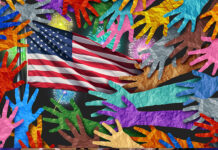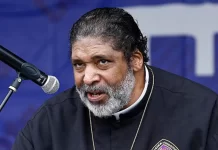By Wanda J. Ravernell
It was a long time coming.
For centuries, they had prayed, fought and died seeking freedom from slavery.
The day they had awaited they called ‘Jubilee.’
Depending on where they resided, the day of ‘Jubilee’ came in fits and starts. In New Hampshire, the last slave was freed in 1853, New York in 1827 and Pennsylvania by 1810.
Enslaved people vicariously celebrated the 1791 revolt in Haiti leading to the first Black republic in the Western Hemisphere in 1804. The 1834 manumission of Blacks in Jamaica was another milestone.
During the slave era, New Year’s Day was dreaded as it was when enslavers settled their debts with the lives of their ‘property.’ New Year’s Eve, then was not celebrated, but rather spent in fervent prayer that their loved ones not be sold away.
Dec. 31, 1862, then, would become the Watch Night of all Watch Nights. Ninety-nine days earlier, Pres. Abraham Lincoln had announced his intention to free people enslaved in most of the Southern states. It was sometime late the morning of Jan. 1, 1863, when Lincoln finally signed the document known as the Emancipation Proclamation and word immediately crossed the country, tapped out in Morse code on telegraph wires.
But news of Jubilee didn’t reach Texas.
It would be two and half years and more than two months after the Confederate army surrendered to a Union Army that included Black men that soldiers brought the news to Galveston, Texas, on June 19, 1865.
The date would be contracted to Juneteenth and become the most widely and continuous celebration of the end of slavery in the U.S. Other states had Freedom Day or Emancipation Day, but those observations had died out as, for the sake of assimilation, Blacks distanced themselves from that dark past.
But not Black Texans, who took their custom with them during the Great Migration that began in earnest in 1915.
In Western cities with sizeable Black populations Juneteenth observations sprang up without the sanction of local government. (Texas would declare Juneteenth a statewide holiday in 1980.)
San Francisco (48 years), Berkeley (35 years), San Jose (41 years) and Vallejo (28 years) are Bay Area cities that have formalized the observation.
In Oakland, for the third year, Councilmember Loren Taylor and Project Lend A Hand– which provides school supplies for needy children — will hold a Juneteenth fundraiser called In the Town.
Barbara Howard of Brilliant Minds Inc., has held a Juneteenth the Last Saturday of the month since 2008. It will take place on June 25, 2022 ,at 925 Brockhurst St. It is free and open to the public
Others, like American Canyon, are holding their first Juneteenths, now that it has become the latest federal holiday, signed into law by Pres. Joe Biden on June 17, 2021.
Juneteenths have typically followed the pattern of those in Texas with parades, barbecues, and festivals, but making Juneteenth a national holiday has some Black people wondering what to do.
Unlike the other holidays that mark the summer, this one has meaning closer to our collective heart.
Frederick Douglass famously asked, “to what is the slave the Fourth of July?” because they had no freedom to celebrate.
Flowers brought to gravesides mark the monuments to loss on Memorial and Veterans’ Day.
But for many of us, these holidays (holy days) are mostly opportunities to gather with loved ones, have some food, play cards, eat some ’que and dance to recorded music in the summer and sleep late on chilly November 11.
So, what do we do with this holiday? This clearly holy day for our enslaved ancestors? How do we honor those who didn’t live to see the day of Jubilee?
And then there’s the quintessential question pushing forward from the back of the collective Black mind: How free are we? With mass incarceration and the persistent ills of the modern Jim Crow era, some would say that slavery never ended.
Research shows that in the initial decades after the news reached Galveston, the formerly enslaved went to church and prayed and gave thanks for the freedom they had attained.
More than 150 years later, perhaps we can set our natural cynicism aside long enough to be happy for our ancestors’ moment.
Perhaps, we won’t go to church. But we can light a candle. We can sing a freedom song together or sing the Black National Anthem in its entirety. We can hang the black, red and green Liberation colors or the Juneteenth flag in the front window.
We can set aside a symbolic plate of ’que, potato salad and greens and pour on the ground a libation of some red drink – hibiscus or Johnny Walker Red.
We can express our gratitude that they lived so we could live.
But perhaps most important, we need to teach our children. And maybe, just maybe they’ll bless us with a freestyle rhyme in the holy names of our ancestors.
The post COMMENTARY: Juneteenth Holiday Touches Collective Memory of African American: It Deserves Honor first appeared on Post News Group. This article originally appeared in Post News Group.
The post COMMENTARY: Juneteenth Holiday Touches Collective Memory of African American: It Deserves Honor first appeared on BlackPressUSA.


















